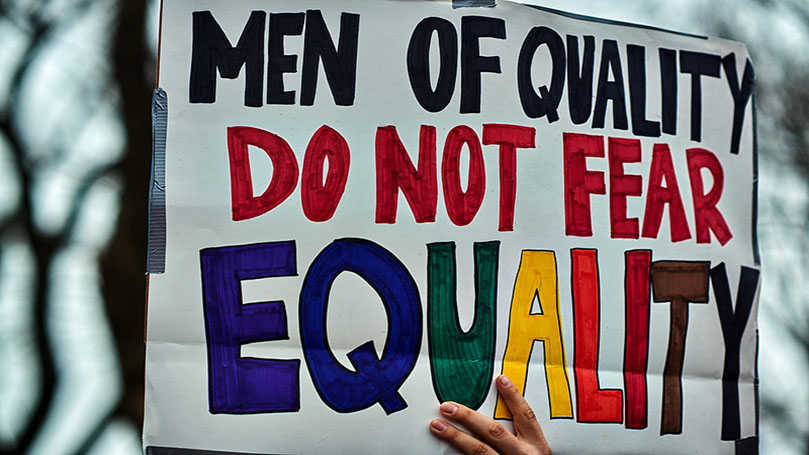
I wanted to thank Joe in particular for bringing attention to the importance of the struggle against male supremacy and misogyny, which are also dangerous and degrading to men, in a couple of ways that have become clearer and clearer to me over the past couple of years.
I’m the primary caregiver for our daughter. For the first year of her life, I would take her to Cori’s workplace a couple of times a day to breastfeed, which meant I spent quite a bit of time sitting around in the main lobby. And people would talk to me because I had a baby. And here’s what I noticed, especially from older people. A lot of women told me how wonderful it was to see a man taking care of a child. “Times really are changing,” one said. “My husband never even changed a diaper.” And I expected that.
What I didn’t expect was the number of men who told me how much they envied me, how they wished that had spent, or had been able to spend, more time with their children. And they told me that, not just when Lucia was sleeping, strapped to my chest, or giggling and making faces. I heard it in the men’s room, when I was changing poopy diapers; I heard it when I was walking and rocking her, trying to get her to stop crying. And it sort of threw light on how much the whole culture of patriarchy, of the gendered division of labor, has cost us—on the one hand, it traps women in the role of caregiver, burdens them with reproductive labor (child rearing, domestic work), but it also locks men out of those things—and both of those have immense costs, both to individuals and to society.
The other thing that needs to be brought out is the way that the capitalist culture of male supremacy and misogyny links masculinity and violence (this is a big part of what’s called toxic masculinity). The ruling class bombards men, and working-class men in particular, with messages that encourage us to see ourselves as users of violence. This is especially pronounced in the messaging of the extreme right. But the other side of that is that it teaches working-class men to see violence they face as workers as normal, even desirable. Unsafe conditions, workplace injuries, overwork—working-class men, especially those in blue-collar jobs, are taught to embrace these things as part of masculinity, which prevents them from seeing their own rights and their own dignity as workers. If we are going to build working-class power and win socialism, we have to help other working-class men struggle against male supremacy and misogyny.
Remarks submitted to the National Committee for the June 6, 2020, meeting.
Image: Alan Greig, Creative Commons (BY-NC-SA 2.0).


 Join Now
Join Now